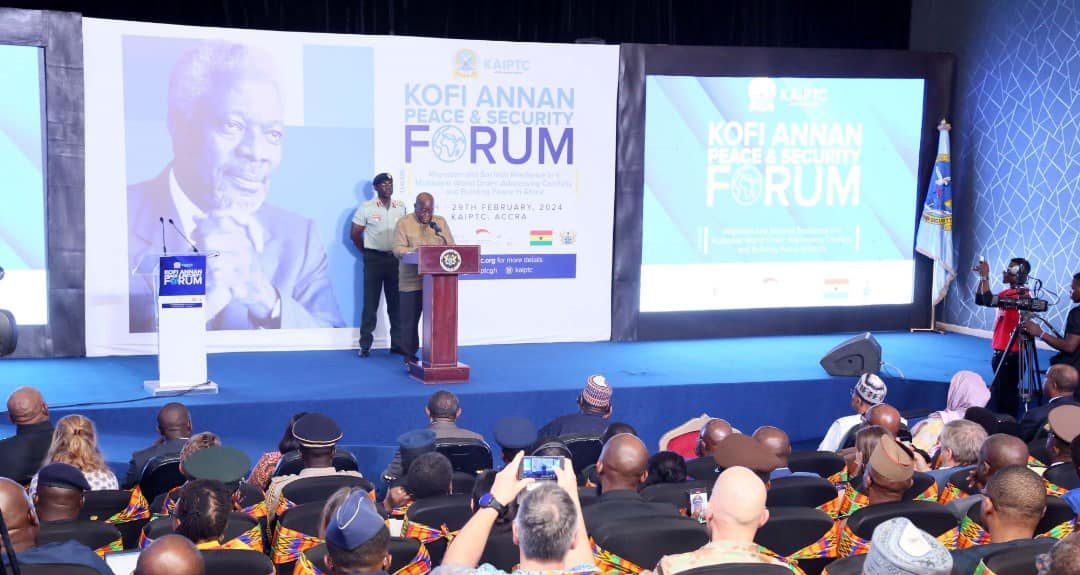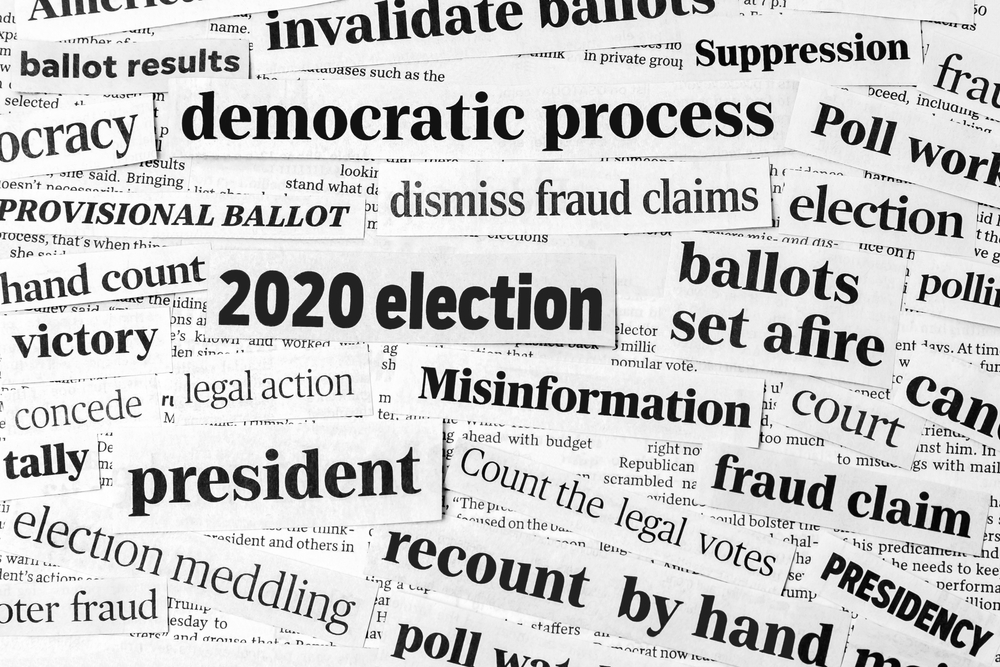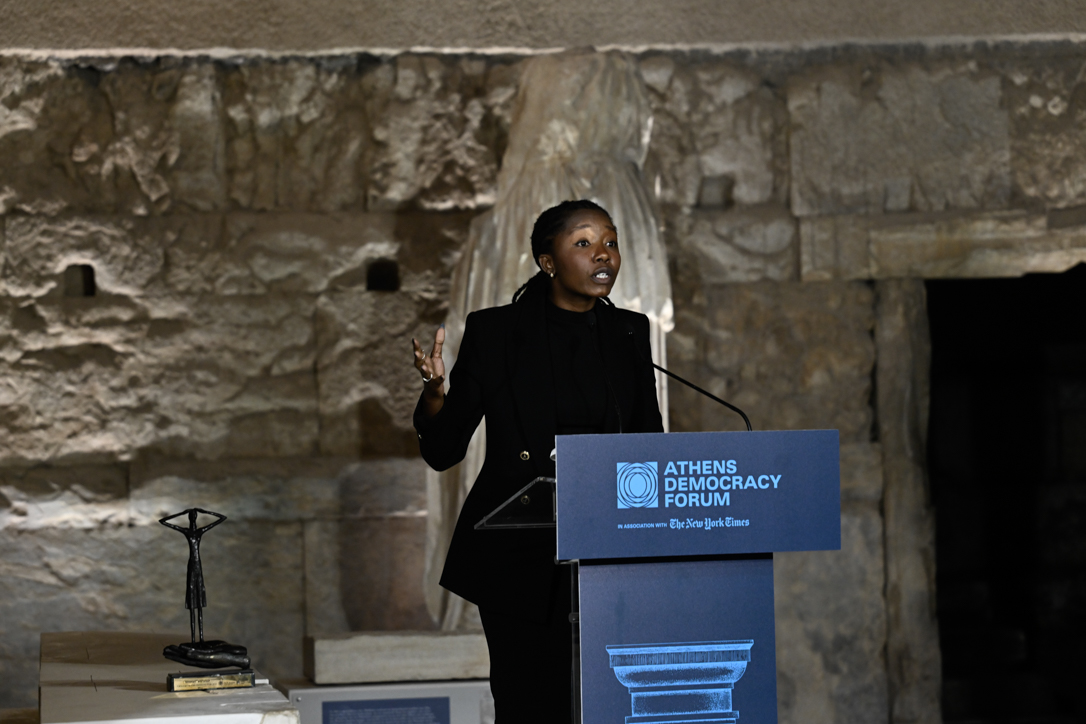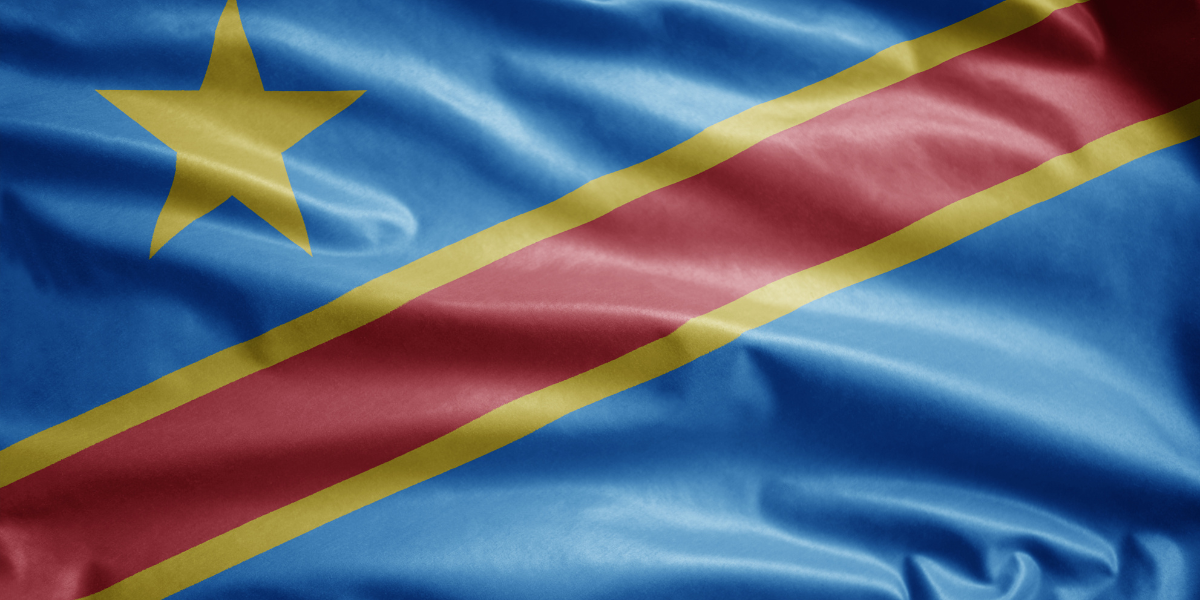West Africa needs a holistic solution to its migration crisis, which includes defending democracy
Kofi Annan Foundation Senior Advisor Sébastien F.W. Brack shares his takeaways from the 2024 Kofi Annan Peace and Security (KAPS) Forum.
“Let me be very clear: I will not be joining the club of African presidents seeking an unconstitutional third term,” said President Nana Akufo Ado of Ghana in his opening speech at the 2024 Kofi Annan Peace and Security Forum, drawing applause from the audience of senior military officers, diplomats, international, regional and national civil servants, think tankers and media.
The focus of this third edition of the KAPS Forum was “Migration and Societal Resilience in a Multipolar World Order: Addressing Conflicts and Building Peace in Africa,” but, the President’s firm statement reminded us that democratic backsliding, the focus of the previous edition, co-organised with the Kofi Annan Foundation is a critical factor driving migration too.
Senior immigration officials and military officers during a panel at the Kofi Annan Peace and Security Forum 2024. Photo credit: The Kofi Annan International Peacekeeping Training Centre
Migration and Societal Resilience
Although the media tend to focus on the dramatic, and sometimes deadly, Mediterranean crossings by Sub-Saharan Africans, 80% of African migration is actually internal. The biggest surge at now is from the Sahel, home to the world’s poorest and fastest-growing populations, to the wealthier and more democratic coastal states like Ghana, Côte d’Ivoire, and Nigeria.
Whilst acknowledging the huge contribution immigrants make to their host states, the discussions at the Forum invariably returned to the growing rejection they are facing across the world, and notably in West Africa itself, due to the unprecedented numbers on the move. Participants lamented the growing xenophobia against Muslim immigrants from the Sahel, many of whom are unfairly conflated with terrorists.
There was a consensus that conditions had to improve significantly in countries of origin to bring down migration numbers and that this would be hard to achieve as military coups upend the fragile states in the region. There was also push-back from many West African participants, noting that although each coup had its specificities, they have all occurred against a similar backdrop of democratic backsliding and growing dissatisfaction with civilian governments, they stressed.
West Africa led the wave of democratisation in Africa at the end of the Cold War, ushering in an unprecedented period of peace, stability and economic growth. However, that growth abruptly slowed after the commodities boom of 2000-2014, and more importantly, it did not sufficiently benefit the majority. Unable to address public dissatisfaction, many governments chose to clamp down on their critics instead, waiving constitutional term limits, organising questionable elections, and suppressing contestation.
Reflecting on Democratic Norms and Governance
The region was, therefore, in a weak position to enforce the democratic norms enshrined in the African Union Charter or the Economic Community of West African States (ECOWAS) own Democracy Protocol, both of which formally prohibit unconstitutional changes of government, against the juntas who took power. The sanctions imposed on Guinea, Mali, Burkina Faso and Niger were heavily criticised, and the threat of military intervention by the chairman of ECOWAS was even more hotly contested. Faced with the prospect of Niger, Mali and Burkina Faso leaving ECOWAS unilaterally, the regional bloc has now lifted its sanctions.
Kofi Annan Foundation Special Advisor Sébastien F.W. Brack, centre, speaks at a panel during the Kofi Annan Peace and Security Forum 2024. Photo credit: The Kofi Annan International Peacekeeping Training Centre
Many West Africans saw the coups as a last resort to throwing out unpopular, incompetent, illegitimate governments. “How could they denounce unconstitutional changes of governments after letting several presidents get away with unconstitutional third terms?” wonders Professor Gymah-Boadi, one of the founders of the Centre for Democratic Development and Afrobarometer. “The coups were a symptom, not a cause, of the democratic decay in the region.”
Afrobarometer polling data indicate that while a majority of West Africans still support democracy as a general system of government, a growing majority express dissatisfaction with their own democratic systems.
In the event, the juntas have not performed any better than the civilian governments they toppled. Mounting evidence disproves their claims of superiority in the battles against corruption, incompetence, and jihadism. They have repeatedly reneged on their promises to organise peaceful transfers of power to new civilian governments via credible elections.
“I think that people are already getting fed up with the juntas,” opined Professor Boadi. “They welcomed their interventions to remove unpopular leaders, but they don’t want to be ruled by the military either. I think the juntas are going to face growing unrest.”
The Way Forward
The main takeaway from the KAPS Forum 2024 is that migration from the Sahel and West Africa cannot be analysed or tackled in isolation. It is the result of endemic poverty, of course, but also of unprecedented demographic growth, democratic backsliding, and violent extremism.
Therefore, the Kofi Annan Foundation advocates for the region to develop a holistic approach to inclusive development, security guarantees, and democratic reforms to live up to its people’s aspirations, with the support of its international partners.
“We know that, in the long run, only democracy can ensure lasting peace, security and prosperity,” President Nana Akufo Ado reminded his audience.
The crisis of democracy in West Africa was the focus of the 2021 Kofi Annan Peace and Security (KAPS) Forum, co-organised by the Kofi Annan Peacekeeping Training Centre and the Kofi Annan Foundation, to mark the twentieth anniversary of the Democracy and Good Governance Protocol of the Economic Community of West African States (ECOWAS). Read more.



